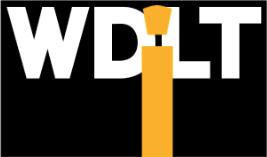Do You Need To Change Anything?
Being a BIG proponent of reflecting, I asked everyone to complete a short survey reflecting on our recent Symposium II day of PD. Overall, the responses were positive, but like anything, you can't please everyone.
Being completely anonymous, the responses were quite candid. To the What-went-well question, one respondent answered -
"It was nice to have a wide range of choices. I enjoyed learning with other teachers who I normally don't have a chance to hang around with"
This was balanced by a What-could-improve answer -
"Encourage inclusiveness vs. cliques by having beople [sic] work with those who are not in their regular social circles."
There were some very positive comments -
"The workshops offered were interesting, fun, and engaging. They helped us to get out of our comfort zone and learn things that we wanted to learn. It was also nice to be able to put on a workshop about something that we enjoy. Seeing other peoples' talents also helped me to appreciate and admire the staff more as well."
Some a little critical (from the What-could-be-improved question) -
"Making sure that all teachers went to the sessions. I know of one teacher who skipped out and did grading instead of attending one of the sessions :(. It would be good to make sure all teachers are involved all day."
And some very critical -
"The creativity and fun aspect of the day is certainly a plus. But I question whether "remember what it's like to be a learner" is a significant enough of a goal to spend an entire day this way. I wonder if the goal were something like "learning about other subjects with the goal of integrating," it could lead to more valuable learning while maintaining the creative aspects. Then if we have sessions on art and dance and movie making and photography, teachers can learn those skills to better help students develop them and use them in their science and English and Korean and math classes. It might provide a better focus for choosing and developing sessions. And it might result in a bigger impact on teaching and learning. Also, it would have been really helpful if you had asked teachers their opinion about how to spend all three PD days AHEAD of time. Teachers really should be playing an integral role in the planning process of every single PD day at this school."
My experience in developing these sorts of programs for faculty and staff across a number of different international schools over the past 15 years has led me to know that this range of opinions is expected, and even more importantly, essential.
As an administrator, it is important to know how things can be improved, what worked really well, and that some colleagues felt the day was a waste of time. It is important to hear that the value I see in devoting a whole day to professional learning is shared by most, but not by all.
My (possibly controversial) reflection is this...
At its core, "Teaching" is about "Learning". You cannot be a great teacher if you are not a great learner. We spend a lot of time (comparatively) learning about teaching (as expert learners), and in the process learn very little! (Generally, not a lot of our fundamental teaching practices change after a conference or a workshop!) We spend very little time (comparatively) learning about learning.
This day of learning was designed in the hope that we would experience what being a NOVICE learner was like again. Because that's what it is like for your students - EVERY day! Maybe EVERY lesson on a given day! Adults are rarely NOVICE learners. And even more rarely do they spend an entire school day being a NOVICE learner.
Before you begin to teach today, consider what it will feel like as a student to sit in your classroom to LEARN today. Do you need to change anything?

